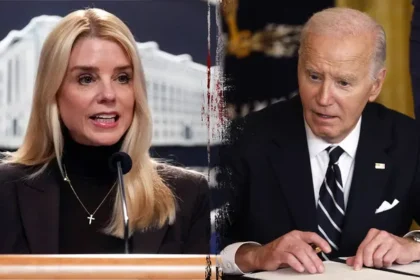Virginia senator urges unity and respects the challenge of minority leadership
Senator Tim Kaine has publicly defended Senate Minority Leader Chuck Schumer’s role at a moment of intensifying criticism within the Democratic Party, saying that some House Democrats should focus on their chamber rather than challenging Senate leadership.
In an interview on a Sunday news program, Kaine emphasised that being the leader of the Senate Democratic caucus — especially in a minority position is a complex, uphill task. He said criticisms from House Democrats who are calling for new Senate leadership miss the point of the different dynamics in each chamber.
A Moment of Internal Debate
The backdrop to Kaine’s remarks is a growing chorus of voices within the Democratic Party calling for fresh leadership in the Senate. Some House members and progressive allies say Schumer has lost the ability to inspire and unify the caucus, particularly after recent votes that split Democrats and allowed Republican-led measures to advance.
In his interview, Kaine said: “Being the minority leader is tough. We don’t control what’s on the floor … if you’re dealing with senators, it’s not exactly like senators just get in line and follow the leader.” He added that he had conveyed to Schumer that he didn’t need a “permission slip” from the leader before voting — underscoring that individual senators retain independence even under the leadership umbrella.
Kaine also sent a direct message to House colleagues: “I don’t tell Ro Khanna or AOC or anybody else who you should pick as your House leader because I got a full-time job being a senator. They should focus on their own leadership and let senators do what we need to do to keep this country moving forward.”
Why Schumer’s Leadership is Under Strain
Senate Democrats have faced significant pressure over recent legislative votes, including crucial spending and government-funding measures. Some critics allege that Schumer has either conceded too much or not offered a bold enough vision in the face of Republican dominance and the influence of Donald Trump-era politics. The argument: that past success does not necessarily guarantee present effectiveness in a changing political environment.
The stakes are heightened because the Senate minority leader role carries heavy responsibility: negotiating with Republicans, managing a diverse caucus, sustaining morale, and positioning the party for future elections — all with limited power. Kaine’s defence hinges on the idea that the burden of leadership in restrictive circumstances is often misunderstood.
What Kaine’s Comments Signify
Kaine’s support for Schumer sends several signals:
-
Unity over division: By defending the leader, Kaine is attempting to reinforce a message of caucus cohesion at a fragile moment.
-
Respect for institution: His remarks suggest it’s critical to respect the institutional complexities of the Senate rather than treat it like the House.
-
Caution against sweeping change: The senator warns against rapid leadership upheaval while the party is in a difficult minority role — hoping for strategic steadiness over impulsive shifts.
For Schumer, the endorsement from a colleague like Kaine helps bolster his standing but doesn’t fully silence calls for leadership change. The internal mood remains uneasy.
Implications for the Democratic Party
This episode highlights larger tensions within the Democratic Party: reform vs. experience, grassroots energy vs. institutional seniority, and immediate responsiveness vs. sustained strategy. The ideological divide often plays out along generational and chamber lines: younger House members pushing aggressively for change, senior Senate members warning of disruption.
Schumer’s defenders argue that stability now serves the party better than change, given the limited power available in the Senate and the need to hold the caucus together. Critics say the party risks looking out of touch and unresponsive if leadership fails to reflect the urgency of progressive demands.
Kaine’s remarks may calm some members for now, but if leaders like Schumer continue to face criticism, deeper leadership discussions could resurface in the next election cycles.
Final Thought
Senator Tim Kaine’s defence of Senator Chuck Schumer underscores a fundamental tension in contemporary politics: whether to push for immediate change or to rally behind the existing leadership and focus on institutional craft. In a time of political turbulence and rising internal pressure, Kaine advocates for unity and patience. Whether this will hold remains to be seen but for now, the message is clear: Senate Democrats must stay cohesive if they hope to counter broader party fragmentation and resist external political forces.











